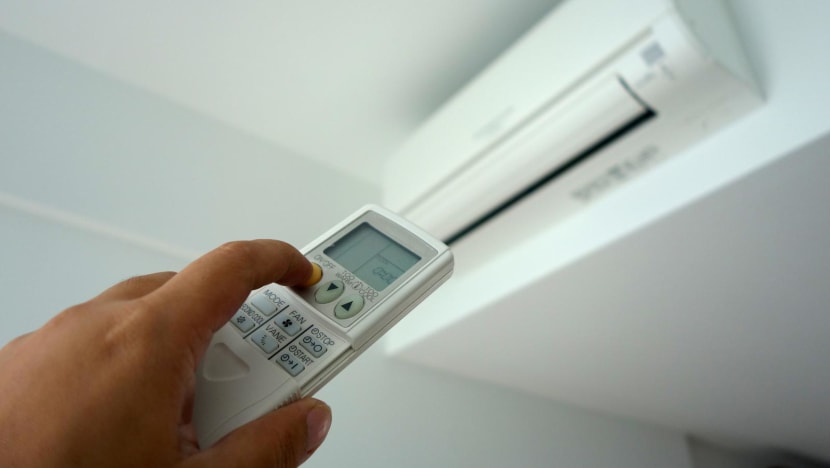Commentary: Turning on the air-con shouldn’t be our only way of coping with hot weather
Some Singaporeans were raised to see air-conditioning as a luxury rather than a right, even on hot days, says writer Imran Johri.


This audio is generated by an AI tool.
SINGAPORE: As a child in the late 70s, one of my favourite sounds was the tink-tink melody of raindrops hitting the corrugated zinc roof of my kampung house. What started as scattered plinks would soon become a full-blown orchestra of a raging storm, slamming against the roof.
Sometimes it would rain so hard, a gentle mist would sneak in from the grilles between the rafters and the walls. While it worked wonders for sleep at night, that zinc roof was no friend during the day, especially when it was hot.
On blistering afternoons, our kampung house became an oven. Back then, our only cooling solution was an ancient metal standing fan, which only served to circulate hot air.
When it got excruciatingly hot, my cousins and I would either head outdoors, under the shade of our giant rambutan tree, or lie topless on the cement kitchen floor.
This all seems like a lifetime ago. Today, people would just switch on the air-conditioner. But should the air-con remote be the first thing we reach for on hot days?
THE LUXURY OF AIR-CON
Temperatures have hit record highs across Southeast Asia in recent weeks. Anecdotally, Singaporeans said they were feeling the heat this April and May, months when hot afternoons are common.
My own children have come back from school looking like they’ve spent the day at the beach - sticky and burnt. But even then, I discourage them from switching on the air-con the moment they come home.
I was raised to see air-conditioning as a luxury rather than a right. To me and my siblings, we were only entitled to it at shopping malls. Indeed, this was a time when schools, buses and even public hospitals were not air-conditioned yet.
But I know firsthand how unbearably hot it can get in a modern flat. My family eventually moved to a HDB flat that soaked up all the sunlight in the day and remained warm throughout the night.
We invested in an armament of fans, from ceiling fans to box fans and standing fans. But on the hottest days, these did not suffice - and there was no reprieve in the form of rambutan trees or cool cement floors.
It took a long time for my parents to decide that it was time to install air-conditioning. We were awe-struck. No more fighting over the rotational angles of fans at night, no more beads of perspiration immediately after a shower - it was going to be life-changing.
But we made the rookie mistake of leaving the air-con on throughout the day, unaware of how much energy an air-con consumes. My dad had a jaw-dropping electricity bill to contend with for the next two months. This made my parents impose tight rules on air-con use.
Soon, we stopped using the air-con units completely - and they fell into disrepair. Everyone in the family simply went back to using fans again.
COOLER HEADS MUST PREVAIL
In the case of the uncomfortably hot weather that has arisen of late, the knee-jerk reaction would be to install air-conditioning in every space.
This would be irrefutable in places where the lack of it could present a life-or-death situation - for example, more sensitive wards in hospital - but it isn't the only solution available for dealing with heat.
In the context of the climate crisis, air-conditioning is truly a luxury we cannot afford. As one of the most energy-intensive household appliances, it may make today’s hot weather more tolerable, but contribute to a warmer future with its carbon emissions.
Cooler heads must prevail - and practical solutions must be applied contextually. For instance, schools could loosen uniform rules for students and shift physical education class timings on hot days.
Under my roof, the air-con is only allowed to be switched on for bedtime. Feeling hot in the day? Lie under the ceiling fan in your underwear, or take a cold shower.
With extreme heat set to be more frequent, it’s best that we adapt to the environment, rather than make it more inhospitable than it already is.
Imran Johri is a marketing professional and a father of three.

















